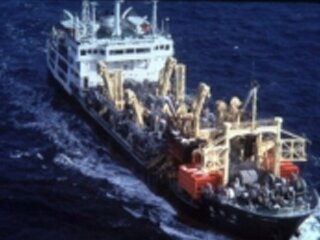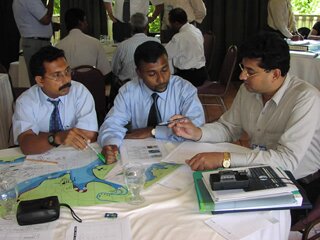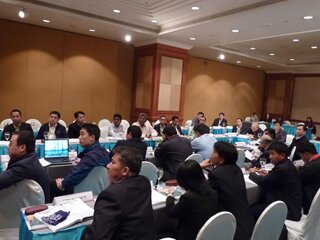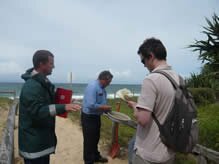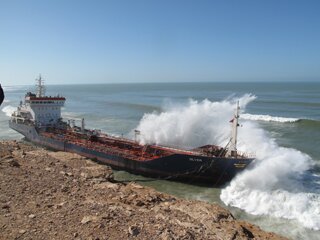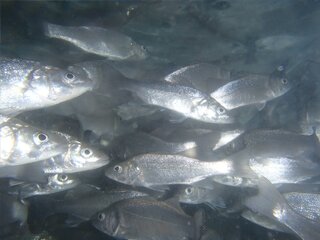Documents & Guides
Explore a variety of topics about marine spills, response and compensation matters in the pages below.
Each topic and area of interest provides access to more detailed documentation that is freely downloadable.
This includes our 18 Technical Information Papers which are fully illustrated with photos and diagrams and are available in several languages.
Compensation for Ship-source Marine Oil Spills
What legal arrangements and sources of compensation are available for a spill from a ship?
Disposal
What planning and waste management systems need to be put in place to reduce the volume of oily waste for treatment or disposal?
HNS
What are the specific chemical response strategies for responding to a Hazardous and Noxious Substance spill, and what are the potential effects on human and marine life?
Contingency & Response Planning
What information is needed for an effective oil spill contingency plan? How can aerial observation and protective strategies assist with response operations?
Economic Effects
Which industries might suffer temporary economic losses and loss of market confidence?
Fate of Oil Spills
What happens to oil in the marine environment over time when spilled at sea? How do different factors such as volume and physical and chemical properties affect the fate of oil spills?
Explore the Resources
The tanker owners' perspective on oil spill response (1997)
The occurrence of major oil spills with costly and far-reaching effects has created the need for cooperation between different countries, and between government and industry. The aim of this paper is to review, from a shipping perspective, the role of industry in dealing with oil pollution incidents arising from the transportation of oil.
Categories: Spill Response, Papers
Country Profiles: A summary of oil spill response arrangements and resources worldwide (1999)
To assist shipowners comply with their requirements under the international conventions ITOPF has produced a series of Country Profiles, available to all via the Internet, allowing users to obtain a quick snapshot of national response arrangements.
Categories: Spill Response, Papers
The ITOPF perspective (2002)
This paper reviews some of the commonly experienced lessons to be learned during oil spill response. From an ITOPF perspective, good management and co-ordination is the key to a successful response.
Categories: Spill Response, Papers
ITOPF's 40th anniversary dinner speech (2008)
A speech presented by Mr Bjorn Moller on the occasion of ITOPF's 40th Anniversary Celebration Dinner at Gibson's Hall, London on 2 October 2008.
Category: Papers
Oil spill preparedness and response : Expectations & realities (2010)
Against a background of reducing oil spills from tankers, maintaining oil spill preparedness and response is a challenge.This paper highlights the evolution of expectations and realities in preparedness and response over time.
Categories: Spill Response, Contingency Planning & Advice, Papers
Information document – the role of ITOPF (2011)
This information document is offered to delegates in order to provide some background to the origin of ITOPF and its role in supporting the P&I Clubs and the IOPC Funds following incidents. It provides a description of ITOPF's funding and its objectivity in spill response and preparedness.
Categories: Spill Response, Damage Assessment, Contingency Planning & Advice, Papers
The adaptation of mariculture practices in response to spilled oil (1999)
Oil spills may contaminate both mariculture facilities and livestock. Prevention of oiling should therefore be afforded a high priority. A number of traditional spill response measures but also self-help response options are open to mariculturalists, that may avoid or limit the effects of spilled oil. The advantages and drawbacks of each of these approaches in the context of oil spill response are discussed.
Categories: Response Techniques, Environmental effects, Papers
Ships and the marine environment (2001)
Ships interact with the environment in which they operate in many ways. Shipping casualties provide the most visual manifestation of the interaction between ships and the marine environment, especially if they result in the death of crew or passengers, or in the release of hazardous cargo or fuel.
Categories: Environmental effects, Papers
Fishing and harvesting bans in oil spill response (1999)
Fishing and aquaculture harvesting bans are increasingly used as an oil spill management tool, with the intention of protecting public health and consumer markets. Such bans are easily imposed, but a rational basis is needed for maintaining and lifting them. Scientific criteria offer the best prospect for administering fishery bans in a consistent way, but recent marine pollution incidents reveal contradictions in their application.
Categories: Environmental effects, Papers
Does cleaning oiled seabirds have conservation value? Insights from the South African experience with African Penguins (2007)
Although there is general consensus among investigators that large numbers of seabirds are killed as a result of oil spills, there is disagreement, mostly in the northern hemisphere, about the extent to which oil mortality is biologically significant to local, regional and global populations.
Categories: Response Techniques, Environmental effects, Papers

